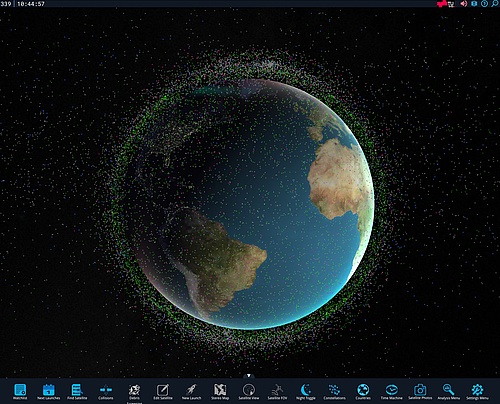Space Objects
Since the beginning of the space age in the early 1960s, the number of objects in space has increased steadily. The European Space Agency (ESA) currently counts more than 35000 objects larger than 10 cm at low earth orbit. This means that high-precision positioning of the various space objects is essential in order to reduce the number of maneuver’s that active satellites have to perform to avoid collisions with space debris. This then ensures the continuation of familiar satellite-based services such as navigation, meteorology and communications.
Depending on the purpose of a satellite mission, the specific orbit design changes. Earth observation satellites generally orbit the Earth at lower altitudes between 500 km and 2000 km. Geostationary satellites, on the other hand, orbit the Earth at about 35786 km above the equator at an angular velocity of one orbit per day, following the Earth's rotation.
With the commercialization of the space sector, private companies in particular began to use and explore this new space. As a result, several trends in satellite design have emerged in recent years. At the beginning of the century, the production of so-called CubeSats, which are smaller and therefore cheaper satellites, began. In this context, Austria launched its first satellite for optical astronomy, TUG-SAT1, in 2013. The satellite is operated by the Graz University of Technology as part of the international BRIght-star Target Explorer programme. To provide global coverage, the number of satellites is constantly increasing, forming so-called mega constellations. Examples of such constellations in the field of communications are Starlink by Space-X, Amazon Kuiper and One Web.

The TU Graz provides a graphical representation of the orbits of active and inactive satellites, as well as larger pieces of space debris. The service is based on the outstanding work Keep Track Satellite Toolkit by Theodore Kruczek published under the Gnu Affero General Public License.

Sandro Krauss
Steyrergasse 30/III
8010 Graz
Austria
Tel: +43/316/873- 6344
Fax: +43/316/873-6845
sandro.krauss@tugraz.at
